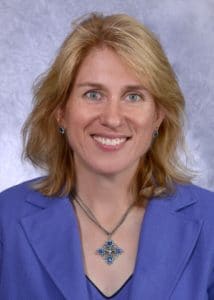Survey: Mass shootings, healthcare among top stressors
Healthcare, mass shootings and the 2020 election are among the top stressors for Americans according to a survey by the American Psychological Association.
Between August 1 and Sept. 2, 2019, the poll asked 3,617 adults to rate their level of stress as well as identify a variety of potential sources.
Concerns about healthcare significantly affect about seven in 10 adults. More than half (64 percent) acknowledge that healthcare is stressing them out as least “sometimes.”
Individuals with private insurance (71 percent) are more likely than those with public insurance (53 percent) to cite it as a stressor. Additionally, 55 percent worry they won’t be able to pay for healthcare services that they may need in the future.
This year’s Stress in America survey also showed individuals more concerned about mass shootings, with 71 percent feeling a “significant” amount of stress compared to 62 percent last year.
Of that total, Hispanic and Black adults (84 percent and 79 percent) are more fearful about mass shootings than white people (66 percent).
Lynn Bufka, Ph.D, APA’s associate executive director of practice research and policy, noted that it is understandable that mass shootings would be so distressing, not only for the lives lost but because such tragic events are unexpected, can happen any time, and are beyond our control.
She said that suicides and homicides are more prevalent but the media coverage of mass shootings and the fact that large numbers of people are impacted make it seem more common than it is.
Another result showed 56 percent of respondents identifying the upcoming 2020 election as a significant stressor, an increase over 2016’s rate of 52 percent.
Bufka pointed out that when people were surveyed in 2016, it was only a few months before going to vote versus more than a year in advance in the current study.
The survey also showed more individuals concerned about climate change, increasing from 51 percent in 2018 to 56 percent in 2019. Bufka said that when natural disasters like hurricanes and earthquakes occur, the human contribution to its cause is not as clear anymore, which may add to the distress.
More adults are also reporting about sexual harassment concerns up to 45 percent from 2018’s 39 percent.
Issues surrounding immigration are cited as stressors by nearly half those surveyed (48 percent). Broken down further, the responses were as follows: Hispanic, 66 percent; Asian, 52 percent; Native American, 48 percent; Black, 46 percent; and white, 43 percent.
Sixty-three percent of people of color indicated that discrimination has hindered them from having a full and productive life, with members of the LGBT community reporting about the same.
The most common personal stressors—work and finances—stay about the same from year to year, according to Bufka. In 2019, those sources of stress affect 64 percent and 60 percent, respectively.
Younger people are more stressed than their older counterparts. Generation Z, comprised of adults born in the mid-90s to early 2000s, have 5.8 percent reporting high stress compared to Generation X at 5.5, Millennials at 5.4, boomers at 4.2 and older adults at 3 percent.
Despite all the concerns, 38 percent of the respondents feel the country is on the path to being stronger, while 73 percent still feel hopeful about the future.
Bufka said that the study “opens a doorway” for psychologists and other mental health professionals to discuss stress with people in communities, whether in a professional practice setting, schools, or businesses.
“A report like this can give psychologists opportunity to talk about these matters with the larger community and overall lead to better health…They can help individuals who are feeling so overwhelmed to understand there is someone out there to help them.”
There are behavioral practices people can do to keep healthy in many ways, she said.
They can work to address the stressors themselves. If work is a problem, for example, maybe a change in work situation is needed.
Psychologists can also help people manage their responses, she said. “If our thinking patterns tend to cycle and get us more anxious, there are ways to rewind that thinking to at least reduce the distress you are experiencing.”
Beyond helping patients, Bufka said psychologists can use their skills and advocacy to bring about policy change and impact issues like immigration in a positive way.
“We can help to change the trajectory for our citizens,” she said.

